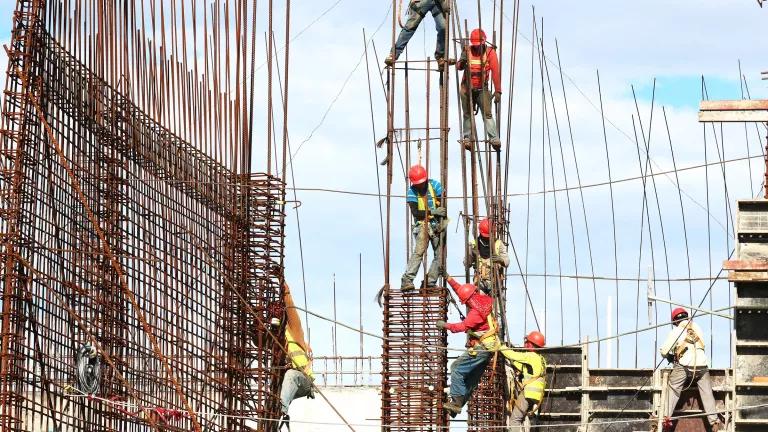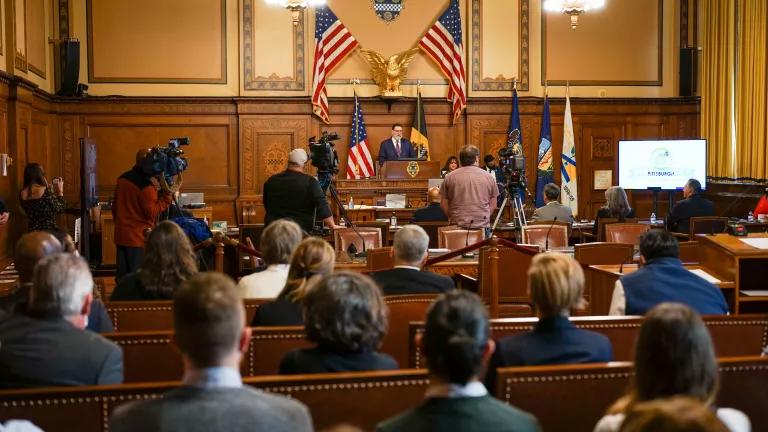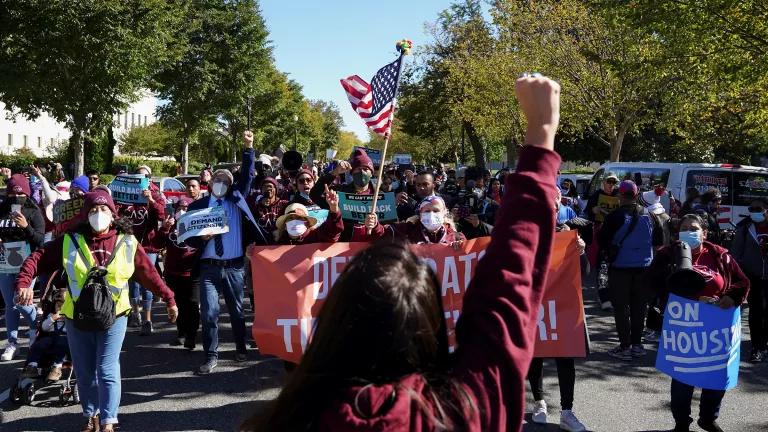Chicago Riverwalk Flooding Is a Climate Change Reminder

It has been raining in Chicago a lot this week. So much so that, downtown workers were treated to an increasingly common sight in the Loop Wednesday morning as they walked past a flooded Chicago Riverwalk. It is jarring to see one of the city’s most popular tourist destinations swamped by murky water rife with contamination from the 75 combined sewer outfalls that dumped directly into the area waterways that day.
I love the Riverwalk. It is fun and has added incredible energy to a swath of downtown that could use it. But, frankly, I think one of the most important, if unintended, benefits of the Riverwalk is that it allows Chicagoans to see how one of the systems this city is built around is failing. Climate scientists have long predicted increasingly more intense rain events—the kind that overwhelm Chicago’s crumbling and outdated combined sewer system and routinely dump sewage into our waterways (sometimes, so much water that it actually forces the river to re-reverse itself and flow out into Lake Michigan, the source of our drinking water).
In the past, that was invisible. Now, thanks to the Riverwalk, it is impossible to miss:
Climate change is already impacting Chicago. We don’t just see it in a flooded Riverwalk. Basements across Chicagoland are attached to the same systems and in many neighborhoods, regular flooding is the norm. And, despite a lot of work to keep up with the problem, it is only going to get worse.
We should heed the warning implied by swamped infrastructure.
Our City leaders need to update the stormwater system that our city relies on. I know this has been discussed at length in the transition team meetings for our new mayor. It is costly and cannot happen overnight, but we need to get serious about a plan to modernize a system that the National Academy of Science reports is responsible for a billion dollars in property damage in Cook County in the last decade. A re-engagement with the cheaper, effective green infrastructure tools pioneered in Chicago to capture, hold and filter rainwater where it falls would be impactful while the combined sewer is addressed in the longer term.
But more importantly, we need to push our leaders in DC to finally act on climate change. Massive floods in the Quad Cities and states across the Midwest in recent weeks make clear that we all have a lot to lose with continued inaction…more than just short cuts and pretty views downtown…




